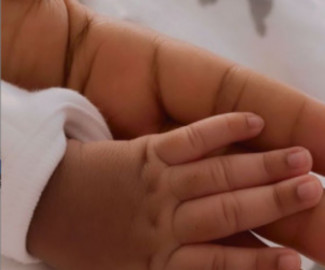Muslim Reactions to Supreme Court Inheritance Ruling

A recent Supreme Court ruling in Kenya, issued on June 30, 2025, has sparked strong opposition from a section of Muslim religious leaders in the Coastal region. The controversial judgment allows children born out of wedlock to inherit property from their deceased Muslim fathers, a decision the clerics vehemently term a violation of Islamic law and an encroachment upon the jurisdiction of Kadhi courts.
Speaking at a press briefing in Mombasa, the religious leaders asserted that the ruling undermines constitutionally recognized religious freedoms and directly contradicts fundamental teachings of Islam concerning inheritance. They have urgently called upon the government and various legal institutions to intervene, emphasizing the critical need to safeguard the application of Islamic Personal Law, which is guaranteed under the Kenyan Constitution.
Sheikh Abu Qatada, who chairs the Pwani Patriotic Religious Leaders, voiced profound concern over the court’s decision, specifically its apparent disregard for the pivotal role of Kadhi courts in adjudicating family matters for Muslims. “We are perturbed by the Supreme Court ruling that equates the inheritance rights of children born outside wedlock with those born within a marriage. Our country acknowledges freedom of religion and family matters are central to our faith. We urge the court to leave such matters to the Chief Kadhi, whose guidance is based on the Qur’an, not man-made law,” Sheikh Qatada stated.
The ruling in question stems from the case of Fatuma Athman Abud Faraj vs Ruth Faith Mwawasi & Others (SC Petition No. E035 of 2023). In its judgment, the Supreme Court dismissed an appeal that sought to exclude children born out of wedlock from inheriting under Muslim law. The Court held that such an exclusion was discriminatory, thereby violating Articles 27 (equality and non-discrimination) and 53 (best interests of the child) of the Constitution.
Furthermore, the Supreme Court clarified that while Article 24(4) of the Constitution permits the application of Muslim law in personal matters, this provision does not grant a blanket exemption from the equality principles enshrined in Article 27. The Court concluded that denying inheritance rights based on the circumstances of a child’s birth was unjustifiable and inconsistent with the principle of acting in the best interest of the child.
However, Muslim leaders remain steadfast in their argument that the ruling infringes upon the autonomy of the Kadhi courts. These courts are constitutionally established under Article 170 to specifically handle matters of marriage, divorce, and inheritance for Muslims. Abu Muhsin, a concerned Muslim faithful, questioned the judiciary's action: “Why does the Supreme Court undermine the Chief Kadhi on matters assigned to him by the Constitution? This judgment disregards our religious laws.”
In response to the ruling, the clerics and members of the Muslim community have outlined a series of demands and proposed actions. These include advocating for legal action by the Attorney General, the Chief Kadhi, and the Law Society of Kenya to challenge the Supreme Court’s decision. They have also urged Muslim lawmakers to introduce legislation aimed at affirming the full and undisputed jurisdiction of Kadhi courts over Islamic personal law, thereby safeguarding against secular interference in religious affairs.
“We are collecting signatures from Muslims nationwide to petition Parliament and the Senate for a reversal of the ruling and protection of our constitutional rights,” Muhsin added, underscoring the widespread community mobilization. While expressing respect for the judiciary, the faithful emphasized their expectation of sensitivity towards the religious frameworks that govern the lives of millions of Kenyan Muslims. “We must never allow our faith-based legal systems to be overridden by decisions that ignore their importance in our community,” he concluded.
Following the conclusion of the appeal process, the Supreme Court has referred the matter back to the High Court in Mombasa for a different judge to determine specific entitlements, indicating that the legal discourse surrounding this contentious issue is far from over.











